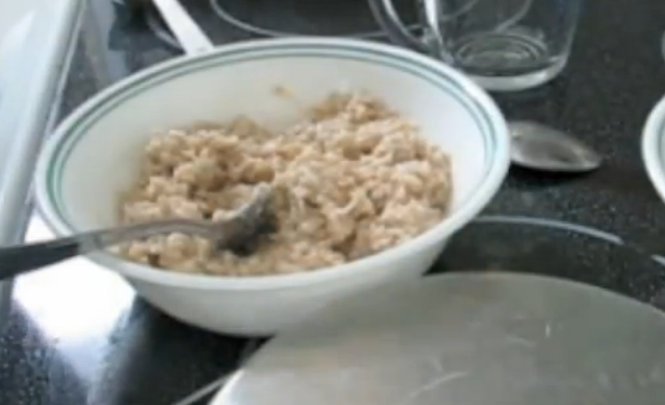Since oatmeal is usually not a wheat product, it does not itself contain gluten. There are researches done, based on which experts explain that gluten is safe for consumption for people who are sensitive to gluten and are trying to avoid it. However, not all oat products are gluten free – depending on the ingredients used and processing techniques. Oatmeal products made in facilities that also process grains that contain gluten including: rye, wheat, etc., can get contaminated with traces of the protein. In fact, according to a study released through ‘New England Journal of Medicine’, some prominent oatmeal brands contain considerable amount of gluten.

Do oats elevate gluten antibodies?
No, Oats do not cause gluten antibodies to increase. In fact, a study that was published through ‘Scandinavian Journal of Gastrointerology’ indicated that volunteers who consumed oats through their strategized gluten free diet had no increment in ‘Immunoglobulin A’ level. This is an antibody which increases if people sensitive to gluten consumes products such as wheat, etc. Experts also highlighted that adult individuals with celiac disease can also consume oats. On contrary, another study suggested that certain variants of oats can be in fact more toxic for Celiac disease affected people, irrespective of the fact that oats are process in pure settings or not.
Oats in restricted quantity
In 2003, the ‘Academy of Nutrition and Dietetics’ – earlier called the ‘American Dietetic Association’ – declared that people who have celiac disease can consume pure oats. However, the institute also suggested that consumption of oats in limited amount can be beneficial. Affected individuals should consume maximum half cup of dry oats. It should be uncontaminated and processed in pure facilities.
How to find gluten free oatmeal?
People affected with gluten intolerance should go for oat products that are pure and guarantee to be free of traces of gluten contaminants. These products may include oats, oat flours, oatmeal, etc. Oats may get contaminated during the harvesting process, storage, transportation and factory processing. They may even get contaminated if they are grown on a field next to whanseat. However, yet there are many manufacturers who produce pure oats- free of gluten traces. While shopping for gluten free products one should always check for label and understand whether the makers claim the product to be 100% gluten free. You may come across many such products.
Bulk bins should be avoided as there are scanty or no ways for the retailer to completely eradicate cross- contamination while selling foods in bulk. Contamination may occur when a seller uses same scoop to pack wheat and oats. It may also happen when a worker does not change his gloves while handling oats and gluten based items. One can also stay away from gluten by being selective while order in restaurants. There are many restaurants that offer gluten free meals. However, if you assume that oats served in hotels can be helpful, then think twice, as one cannot guarantee purity. Oats may also become contaminated while cooking. It is best to avoid consuming oats while you are eating out.
Gluten free oats at home
People who are trying to avoid gluten should also be careful while preparing oatmeal at home. There are chances that one may also unintentionally contaminate oats if there are other gluten based products on the shelf. One may possible use gluten based ingredients to prepare oats such as wheat-breadcrumbs, etc.
Additional Considerations
If you are considering a gluten free diet is it better to consult a dietician and ask him to suggest a strategized diet. Your dietician can suggest you foods that are gluten free and safe for consumption. Your dietician may also suggest you with oat brands that are 100% free of the protein.


